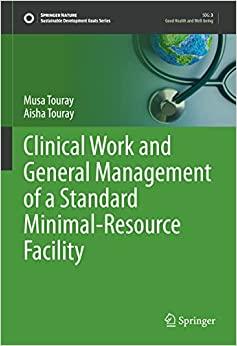Question
can you please provide a citation in this essay from this book lingner, D.E., Nalbandian, J., & Llorens, J., Public personnel management, 7th edition. Longman/Pearson
can you please provide a citation in this essay from this book
lingner, D.E., Nalbandian, J., & Llorens, J., Public personnel management, 7th edition. Longman/Pearson higher Education
What are the Most Significant Trends in State and Local Workforce Hiring
Several significant trends are shaping the hiring practices of the state and local workforce. The COVID-19 pandemic has accelerated the adoption of remote work arrangements, leading to increased offering of remote work, flexible schedules, and telecommuting by state and local governments. There is also a growing emphasis on diversity, equity, and inclusion in the hiring process, with organizations implementing strategies to recruit and retain diverse talent, reduce bias in hiring practices, and develop inclusive workplace cultures.
Digital transformation is another significant trend shaping state and local government hiring practices. To streamline hiring processes, improve efficiency, and enhance the candidate experience, organizations are leveraging technology such as applicant tracking systems, digital interviewing platforms, and data analytics for recruitment and selection.
Skills-based hiring is also gaining traction in state and local government hiring practices. Rather than relying solely on traditional credentials, organizations prioritize candidates with relevant skills and competencies, including technical skills, soft skills, and leadership abilities.
State and local governments are investing in workforce development and training programs to meet the evolving job demands. These initiatives aim to build the skills and capabilities of current and future employees and promote upskilling and reskilling.
With increasing retirements and succession challenges, state and local governments are developing succession plans, knowledge transfer strategies, and leadership development programs to ensure continuity and effectiveness in critical roles.
Collaboration with the private sector, educational institutions, and nonprofit organizations is becoming more common in state and local workforce hiring. These partnerships help address talent gaps, provide training opportunities, and enhance recruitment efforts.
As remote work becomes more prevalent, state and local governments adapt their recruitment and onboarding processes. Virtual recruitment events, online assessments, and remote onboarding programs are being implemented to accommodate remote candidates.
Employee well-being and mental health have become priorities for state and local governments. Organizations offer wellness programs, mental health resources, and flexible benefits to support employee health and work-life balance.
Data-driven decision-making is also gaining traction in state and local government hiring practices. Organizations are using workforce analytics, performance metrics, and predictive modeling to inform recruitment strategies, improve hiring outcomes, and measure the impact of workforce initiatives.
These trends reflect the evolving nature of state and local government workforce hiring practices, driven by technological advancements, demographic shifts, changing employee expectations, and the need for organizational agility and resilience.
Step by Step Solution
There are 3 Steps involved in it
Step: 1

Get Instant Access to Expert-Tailored Solutions
See step-by-step solutions with expert insights and AI powered tools for academic success
Step: 2

Step: 3

Ace Your Homework with AI
Get the answers you need in no time with our AI-driven, step-by-step assistance
Get Started


